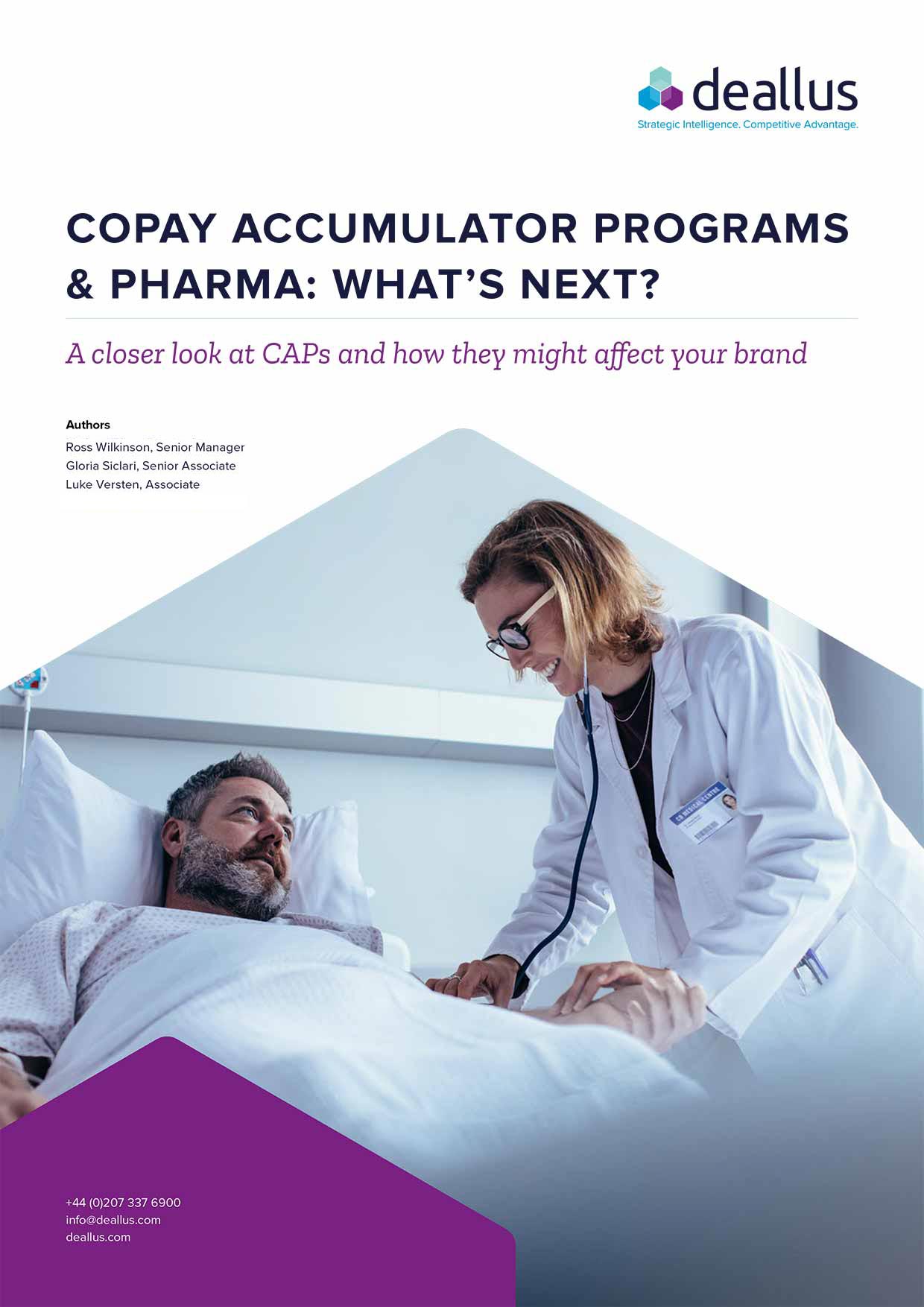Copay Accumulator Programs & Pharma: What’s Next?
A closer look at CAPs and how they might affect your brand
Dynamics between pharma and the market-based healthcare sector it serves have invariably been complex, with one of the biggest drivers of that complexity being effective management of patient demand and payer systems.
And over time, payer business models are becoming increasingly convoluted. The newest stratagem in this push and pull is the copay accumulator program, or CAP. First introduced in 2018, these programs are now rapidly being rolled out by payers, with data showing that nearly one-third of commercially insured patients are now directly impacted by CAPs – enrolled either in plans that have implemented copay accumulator adjustment or closely-related copay maximizers.
The CAP, with its differing and confusing scopes of application, is one more contour to successfully navigate when attempting to balance clinical and economic value in product development and commercialization decisions.
What is a CAP?
Copay accumulator programs (CAPs) permit employers and PBMs to exclude copay assistance from the calculation of a patient’s annual deductible, effectively negating the value of the copay assistance for said patient.
Prior to the introduction of the CAP, payers sought to guide patients toward less expensive treatments by making them pay a higher portion of a drug’s costs. Drug-makers responded by increasing the financial aid they offer, in the form of copay assistance, to shield consumers from these rising expenses. Payers, however, have now turned the tables on Pharma. They are using CAPs to leverage the value of the manufacturer copay coupon, in turn increasing beneficiary cost-sharing amounts to meet deductible amounts.
You may also be interested in…
World Brain Day 2024
Established by the World Federation of Neurology in 2014, World Brain Day seeks to raise public awareness on various neurological health topics each year. This year’s theme, “Brain Health and Prevention”, brings awareness to preventive measures that can alleviate the burden of many neurological conditions for patients across the world.
World Kidney Cancer Day: The future of RCC treatment
World Kidney Cancer Day brings much needed attention to a disease affecting hundreds of thousands of people worldwide.
Revolutionizing Blood Cancer Treatment: A Dive into Cutting-Edge Therapies
World Blood Cancer Day [28 May 2024] serves as a stark reminder of the significant challenges faced by the millions battling these life-threatening diseases. Here at Deallus, we have been privileged enough to partner with many leading companies in this space to support the development of lifechanging therapies across haemato-oncology.
World Day for Cultural Diversity 2024
Feel the driving force of Cultural Diversity as voiced by my global Deallus colleagues. Happy World Day of Cultural Diversity!






